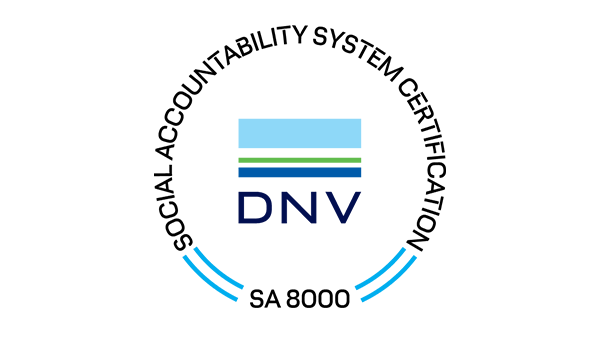The ZAL Port of the Port of Barcelona has obtained the SA 8000® certificate from the International Social Responsibility company (Social Accountability International – SAI), which accredits its occupational health and labor rights management system with the “highest international quality standards”.
This is one of the only twenty certificates achieved by Spanish companies in the field of labor welfare, so it “reaffirms the commitment of the logistics institution” in this management.
The SA 8000® standard is an auditable social certification standard that establishes voluntary requirements to be met by employers in the workplace, including worker rights, workplace conditions, and management systems. . The normative elements of this standard are based on national legislation, international human rights instruments and ILO conventions.
The requirements of the SA 8000® standard to achieve it are:
- Child labor. Prohibition of the use of child labor.
- Forced or compulsory labor. The use of forced or compulsory labor is prohibited. The organization cannot in any case withhold part of the salary or deposits in order to force the worker to continue working. All personnel must be free to leave the workplace premises at the end of their workday and must also be free to resign employment with reasonable notice.
- Health and security. A healthy and safe work environment must be provided in which risks of accidents and illnesses are prevented. In cases where required, the organization must provide the necessary personal protective equipment, as well as effective training to all workers.
- Freedom of association and the right to collective bargaining. These rights must be respected and workers allowed to have their own union representatives.
- Discrimination. No type of discrimination based on race, nationality, social origin, sex, political opinions, disability, religion or any other condition that may give rise to discrimination is allowed.
- Disciplinary measures. Disciplinary practices that violate the dignity of people, involve physical or verbal punishment or psychological abuse are prohibited.
- Working hours. You should never exceed 48 hours per week, not including overtime. Overtime must not exceed 12 hours per week.
- Remuneration. This must be sufficient to cover the basic needs of the staff and offer a discretionary income, according to the standard of living in the region.
- Management systems. The organization must implement a management system that allows it to maintain and demonstrate all the practices carried out to comply with the points of the standard.
 [+34] 93 552 58 26
[+34] 93 552 58 26 sac@zalport.com
sac@zalport.com Av. Ports d'Europa 100, Planta 0, 08040. Barcelona
Av. Ports d'Europa 100, Planta 0, 08040. Barcelona






